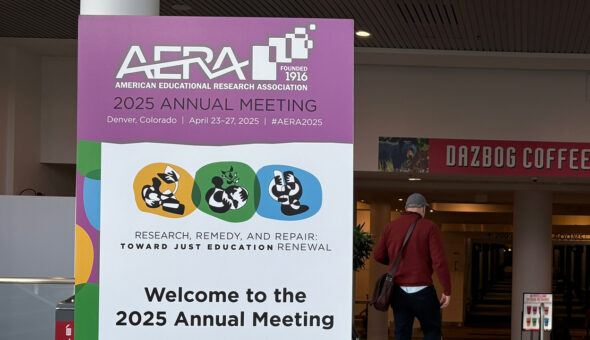Shona McIntosh, Rachel Wilder, Abena Baiden, Angie Bailey, Clare Hawkes, Hannah Hogarth, Lizzi Milligan, Bukola Oyinloye were contributors to the Epistemically Just Methodologies 2021 Seminar Series, University of Bath
This blog emerges from a collaborative writing workshop to explore concepts of justice and ethics in research methodologies. The workshop was the final session of a participatory seminar series on epistemically-just methodologies run by Shona McIntosh and Rachel Wilder in the Department of Education. From January to June 2021, a diverse group of researchers from around the world met online to discuss a selection of specially chosen papers. We interrogated power dynamics, creativity and immanence (Cannella 2015; Davies et al. 2006; Renold 2018) and researchers’ relationships with their research participants.
The seminar series provoked debate and identified some key tensions, particularly when the ethical practices people wanted to employ sat uneasily with ways that institutional protocols and professional norms directed those practices. Discussions pointed to ethics as a series of delicate, interlinked interactions to be negotiated throughout the research: a process that sits uneasily beside more rigid institutional protocols.
Over three posts, we discuss several ideas that emerged from the seminar series. The posts weave together the collaborative writing produced by attendees of the workshop in the final session. This first post in the series explores what it means to be an ethical researcher.
Does being an ethical researcher depend on personal characteristics?
The group said that ethical researchers have particular personal values and characteristics. Ethical researchers are attentive and questioning: they listen to research participants, they reflect on the community and the culture where they research. An ethical researcher is self aware, they interrogate their own positionality and privilege. They ask themselves ‘how will it make this person feel for me to be asking them these questions?’. Or ‘given my experience and who I am, how will that shape what and how I hear my participants?’. And ‘can I do justice to their knowledge in my interpretations and representations of them?.’
Reflections on these questions might ultimately lead a researcher to ask ‘am I the right person to be doing this research?’. These realisations indicate qualities such as humility, kindness and honesty about the way knowledge is co-created.
Ethics is a complex, transdisciplinary topic that is fundamentally about values in relationships. Researchers are accountable to their discipline(s), to their institution and to their funders, but the most important relationship of accountability is to research participants. Ethical researchers see participants as knowers and recognize that socially just research relies on research participants’ knowledge.
What are ethical practices?
Ethical practice goes deeper than administrative protocols and researcher accountability when researchers engage in continuous, self-aware, reflexive negotiation of the ethical conditions of the research in collaboration with participants (Gewirtz and Cribb 2006). This process could lead to adjusting research practices to mitigate unequal power dynamics with participants and result in building deeper understanding of the potential for harm pre-, during and post-research. One way to address this is by making the research process transparent in order to build mutual trust.
Trust-building is part of an ongoing way of doing research, emerging in a to-and-fro between personal values, attitudes and beliefs and the wider environment and context. This matters if the research questions are to address problems important to the participants. Such problems, framed as research questions, establish foundations for just research.
We felt that trust and transparency are central to communicative practice. Ethical researchers reflect on how to be open with research participants while also ensuring that their work is accessible, intelligible to those unfamiliar with academic discourses and avoids language that is paternalistic or patronising.
Now re-visit your own ethical practice
Ethical processes are complex and uncertain; they shift over time and in response to the emerging relationship between researcher and research participants. As researchers, we are learning all the time how to do ethics, and this changes with every study. We are always becoming ethical researchers so it is always worth asking ourselves: how am I being ethical in my research?
We are not suggesting that there is a recipe for being an ethical researcher or for conducting ethical research. However, we are saying that being an ethical researcher requires shifting the ethical ‘centre’ away from researchers’ views and towards participants’, and taking steps to avoid an ethical orientation that is defined exclusively by the researcher and their institution.
References
Cannella, G.S. (2015) ‘Qualitative Research as Living Within/Transforming Complex Power Relations’, Qualitative Inquiry, 21(7), 594-598.
Davies, B., Browne, J., Gannon, S., Hopkins, L., McCann, H., and Wihlborg, M. (2006) Constituting the Feminist Subject in Poststructuralist Discourse. Feminism & Psychology. 16(1):87-103.
Gewirtz, S. and Cribb, A.(2006) What to do about values in social research: The case for ethical reflexivity in the sociology of education. British Journal of Sociology of Education, 27(2), 141-155.
Renold, E.J. (2018) ‘Feel what I feel’: making da(r)ta with teen girls for creative activisms on how sexual violence matters, Journal of Gender Studies, 27(1), 37-55.
Respond


